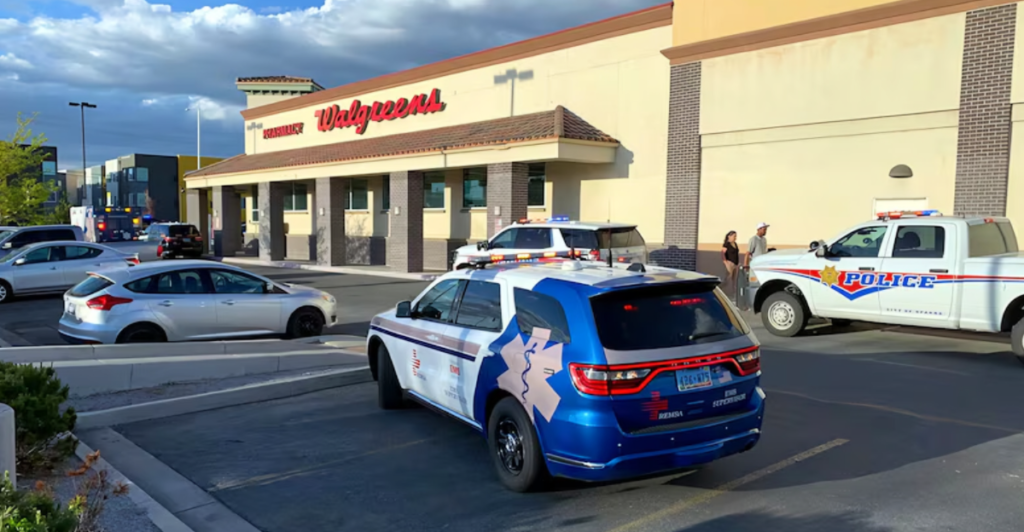
Walgreens is one of the biggest pharmacy chains in the United States and has established itself as one of the most popular places for citizens’ pharmaceutical needs.
Recent controversy has reared its head, and the franchise has agreed to pay $350 million after being accused of filing too many illegal opioid prescriptions. Walgreens allegedly gave out prescription painkillers that shouldn’t have been given and then was paid by government health programs for them.
The $350 million settlement is part of the effort by the government to hold companies accountable for their role in the opioid crisis, which has killed many people.
What It Matters

Hundreds of thousands of people have died in the United States over the past two decades, all due to the opioid crisis. Historically, prescription painkillers have played a role in these deaths.
Pharmacies like Walgreens are responsible for dispensing these prescription painkillers safely to those who need them. This settlement is just one of many recent legal actions that have been taken against large companies that have played a role in the opioid crisis, with an emphasis being on holding businesses responsible for inadvertent and indirect deaths.
The Government’s Claims

The government claims that Walgreens filled millions of prescriptions that weren’t legally allowed. This includes dispensing more pills than the prescription allowed or giving customers their prescriptions early.
There have even been allegations of drugs that shouldn’t have been given together, as they create dangerous circumstances for those affected. Walgreens is accused of pushing pharmacists to fill out prescriptions quickly without considering what consequences their actions could have.
This allegedly resulted in illegal prescriptions being filled without many pharmacists even realizing it. This alleged behavior violated laws that are put into place to prevent dangerous drugs and protect patients from harmful situations.
Walgreens Side

While the government is convinced of the wrongdoings that Walgreens has committed, the company refutes these accusations. The company has stated that it has always followed the law and tried to keep patients safe.
Their pharmacists allegedly work hard to prevent the abuse of their prescriptions, and the government’s claims are unfounded. Despite their pleading innocence, Walgreens has decided to settle the case to avoid a long and costly legal battle with the government.
A prolonged and drawn out court case could hurt the company’s image further, and distract from efforts to improve pharmacy services. Walgreens has stated that the settlement is a practical step to focus on future improvements.
The Laws Allegedly Broken

Walgreens has allegedly broken two important laws that all Pharmacies should follow closely. The first laws that were broken were the Controlled Substances Act and the False Claims Act.
The former law stipulates that pharmacies should only fill medically necessary and legitimate prescriptions. The latter law prohibits companies from billing the government for illegal prescriptions.
By allegedly filling unlawful prescriptions, they have broken both laws at once. These laws are put into place to prevent the misuse of strong prescription drugs and protect taxpayer money from being wasted on unnecessary or underhanded prescriptions.
How The Problem Could Have Happened

The case represents a bigger issue in how large pharmacies operate. Walgreens and other pharmacies often need to fill out a large number of prescriptions every day.
With so many orders, employees may be pushed to work faster, meaning that slip-ups could happen. Pharmacists are under immense pressure to meet high-volume targets, which can limit the time they can dedicate to checking the legitimacy of every prescription.
A lack of staffing or proper training also results in more mistakes happening. This is a problem for all pharmacies and not just Walgreens.
Another Point Of View

Some experts have weighed on this problem in the past and have argued that pharmacies like Walgreens aren’t the root cause of the problem with regard to the opioid crisis.
Doctors or prescribers are the ones that dictate who qualifies for opioids and how strong dosages are. This suggests that pharmacists can only do what the prescription says and cannot further stop its misuse if the problem originates at the top.
This raises the important rationale that responsibility should be a shared burden among doctors, prescribers, pharmacists, and pharmacies. This point of view could help shape future policies to aid in combating the opioid crisis.
Implications For Other Pharmacies

The Walgreens settlement is a relatively high-profile case and could effect how pharmacies regulate across the United States. Walgreens will follow stricter rules and ensure that prescriptions are accurately filled and staff are well trained and capable in light of the settlement.
Other pharmacies could be accused of similar accusations and have to settle as well, which could slow down how quickly prescriptions are filled, but ensure that it is in a safe and responsible manner.
Financial costs could lead some smaller pharmacies to close or merge if they are hit with a lawsuit as well.
Public Health

The settlement that Walgreens has opted for could lead to better public health outcomes by possibly pushing new ways of monitoring and controlling prescription drugs, but it could come at the cost of public outcry.
A push for better technology amidst this high-profile case could drive innovation in dispensing prescriptions. Pharmacies, doctors, and government agencies could collaborate better in the future to prevent opioid abuse.
The settlement also sends a large message to other companies about the repercussions of alleged prescription misuse.
Learning From The Crisis

The financial penalties that Walgreens have faced are more than just a repercussion of an action. It is a warning that companies need to be responsible and take accountability if they play a role in the opioid crisis.
Walgreens has refuted these accusations, insisting that they worked within the boundaries of the law. Whether or not this is true, it shows that regulators expect pharmacies to tread lightly when it comes to the opioid crisis.
This could be a blueprint for future efforts to prevent drug misuse and help reduce the devastating impact of the opioid epidemic.
Discover more trending stories and Follow us to keep inspiration flowing to your feed!

Craving more home and lifestyle inspiration? Hit Follow to keep the creativity flowing, and let us know your thoughts in the comments below!
